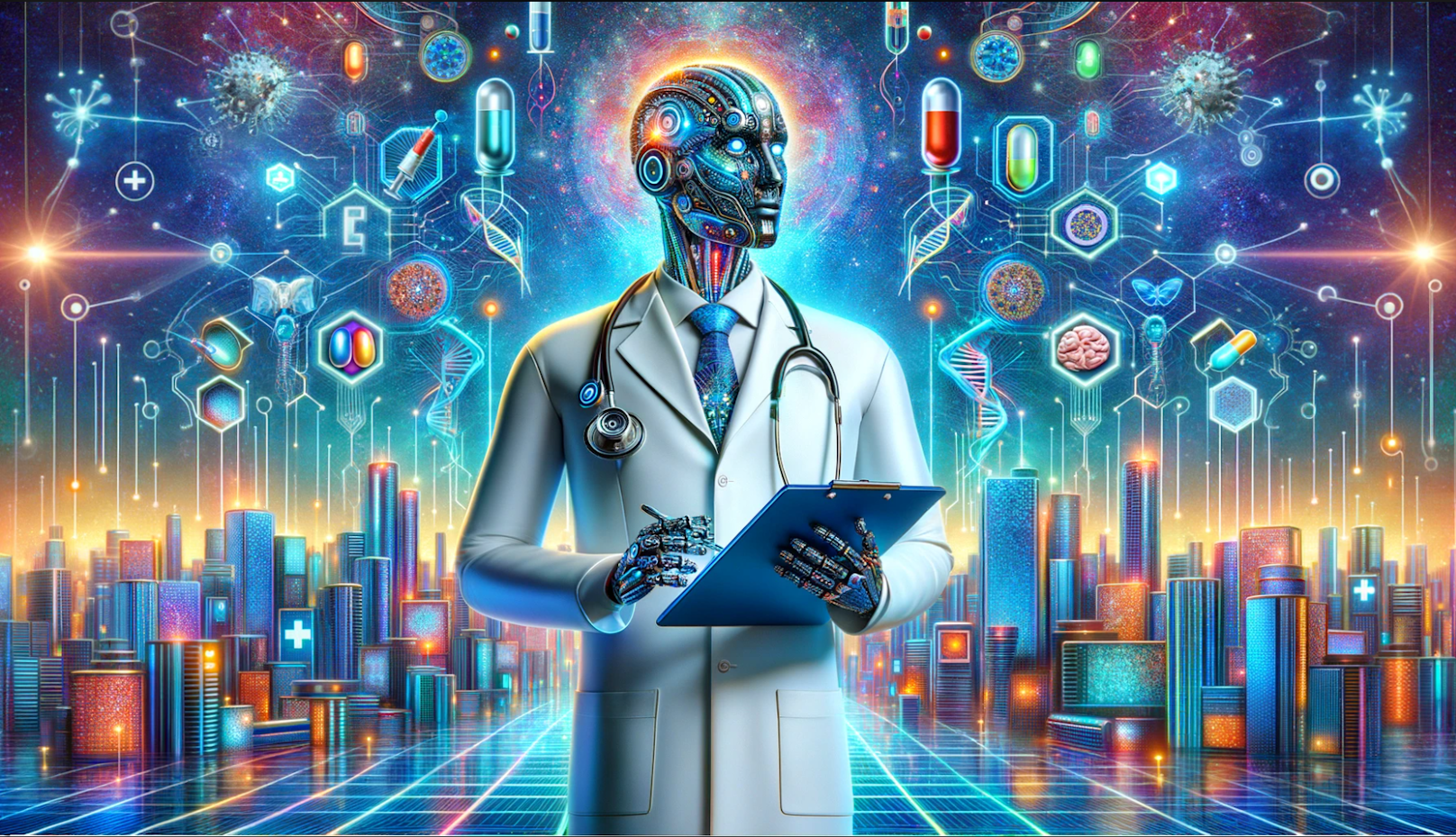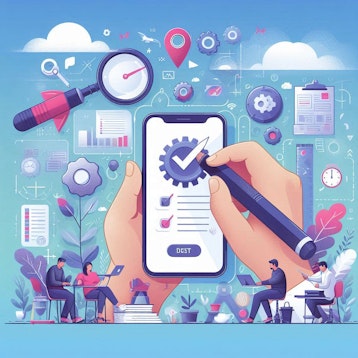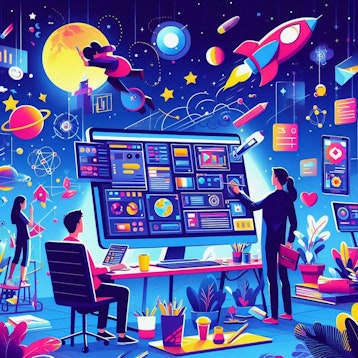In the realm of healthcare, a silent yet profound revolution is unfolding, powered by the innovative prowess of Artificial Intelligence (AI). This technological leap is not just a fleeting trend but a fundamental shift, altering the very fabric of healthcare delivery.
At the forefront of this transformation are AI healthcare startups, serving as the vanguard in this new era of medical innovation. These startups are not merely participants in the healthcare sector; they are reshaping it, bringing forward solutions that were once the domain of science fiction.
AI's role in healthcare is multifaceted, acting as a catalyst in areas ranging from predictive diagnostics to personalized treatment plans. These advancements have a singular goal: enhancing patient care and outcomes. AI's ability to process and analyze vast datasets is improving efficiency, a concept further elaborated in Will AI Replace UX Designers? but is also opening new avenues for treatment and diagnosis. For medical companies and healthcare providers, AI presents an unprecedented opportunity to redefine patient care, making it more accurate, accessible, and personalized.

Importance of AI in the Medical and Healthcare Sectors
One of the most significant impacts of AI is its potential to transform data into actionable insights. In the complex world of healthcare, where every patient's journey is unique, AI provides the tools to decode this complexity. By analyzing patterns and predicting outcomes, AI is enabling more informed decisions, a topic further explored in one of our recent articles, AI Tools for Recruiting. In the context of healthcare startups, tailoring treatments to individual needs, and foreseeing potential health risks before they become critical issues.
Moreover, AI is democratizing healthcare, breaking down barriers, as seen with DeepMind's work in diagnosing eye diseases and making advanced diagnostics and treatment plans more accessible to a broader population. This is particularly vital in underserved regions where healthcare resources are limited. AI-powered solutions, like those discussed in AI startups, can bridge these gaps, ensuring high-quality healthcare is not a privilege but a universal right.
As we stand on the brink of this AI-driven healthcare era, it's essential to recognize that this is just the beginning. The full potential of AI in healthcare is yet to be realized, but the journey so far has been nothing short of remarkable. AI healthcare startups are leading the transformation towards more effective healthcare heralding a future of effective, efficient, and equitable healthcare.
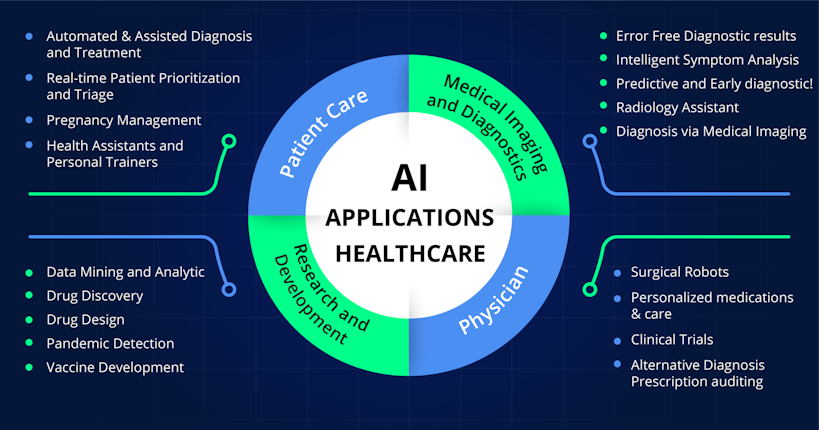
Top 10 AI Healthcare Startups
AI in healthcare is rapidly developing, with numerous AI-enabled startups emerging every day. Here are 10 of the most promising AI healthcare startups to watch out for in 2024 and beyond in terms of funding, innovation, and market impact:
1. Babylon Health: This is a UK-based company that uses artificial intelligence (AI) to provide virtual healthcare consultations. Their app allows patients to speak directly to doctors or nurses, obtain prescriptions, book appointments, and more. Babylon has raised over $1.2 billion in funding and is valued at more than $4 billion.
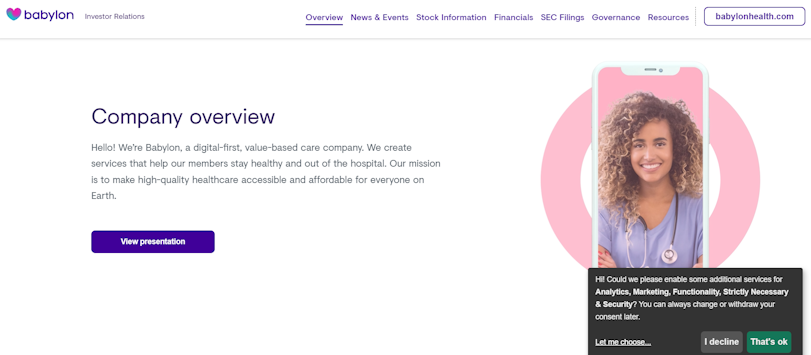
2. Freenome: An AI-powered company from the US that analyzes blood tests for early signs of disease detection, with their technology capable of spotting cancer, heart disease, and other conditions five years before traditional methods. Having raised over $1.1 billion in funding alone and valued at $5 billion+; Freenome has raised an impressive total of over $2.1 billion overall.
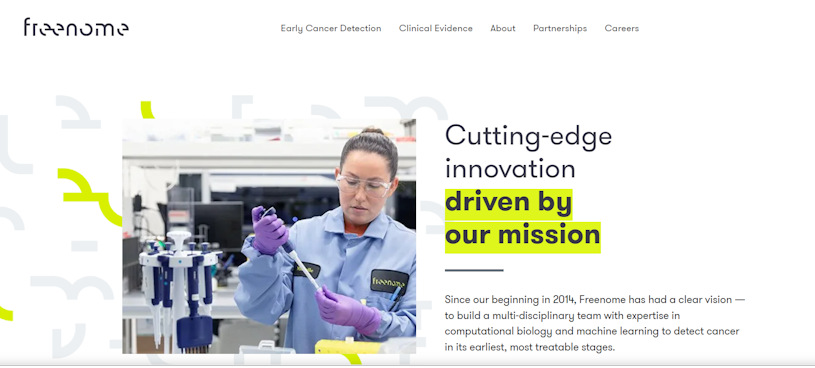
3. Olive AI: Olive AI is a US-based AI company that utilizes artificial intelligence to automate healthcare administration tasks such as claims processing and prior authorizations, saving hospitals and insurers both time and money on such processes. They have raised over $902 million in funding so far, and have an estimated valuation of over $2 billion.

4. Insitro: Insitro is an AI-powered pharmaceutical discovery and development platform in the US that utilizes AI to accelerate drug discovery and development, using machine learning technology to identify promising candidates among millions. They have raised over $743 million from investors, and currently stand at over a $1 billion valuation.
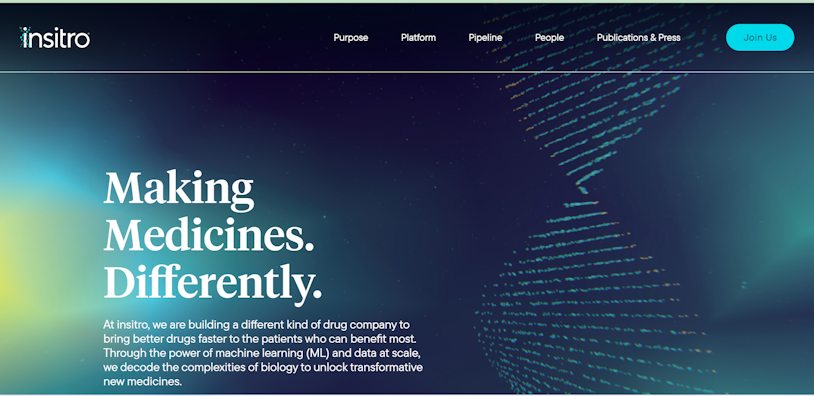
5. Exscientia: Exscientia is a UK-based AI drug development company. Their technology creates 3D models of proteins to simulate how drugs interact with them and has received over $474 million in funding since its establishment, with its current valuation estimated at $400 million+.
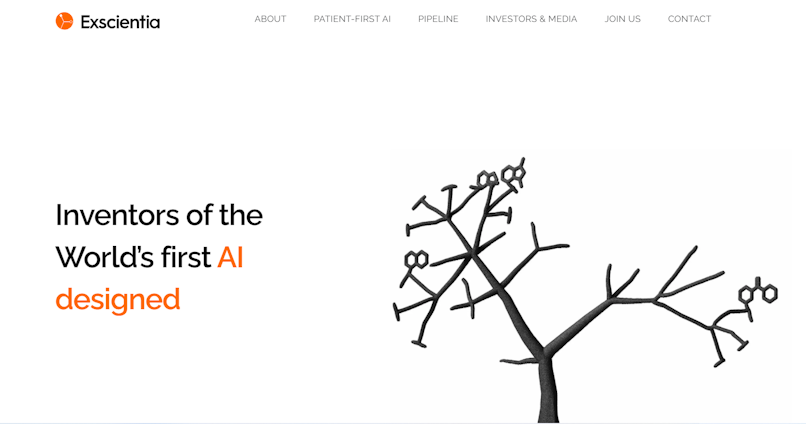
6. Biofourmis: Biofourmis is a Singapore-based company that uses AI to remotely monitor patients living with chronic conditions remotely. Their platform collects data from wearable devices and sensors before using AI to identify early signs of problems. As of September 2017, Biofourmis had raised $463 Million in funding and is valued at over $1 Billion.
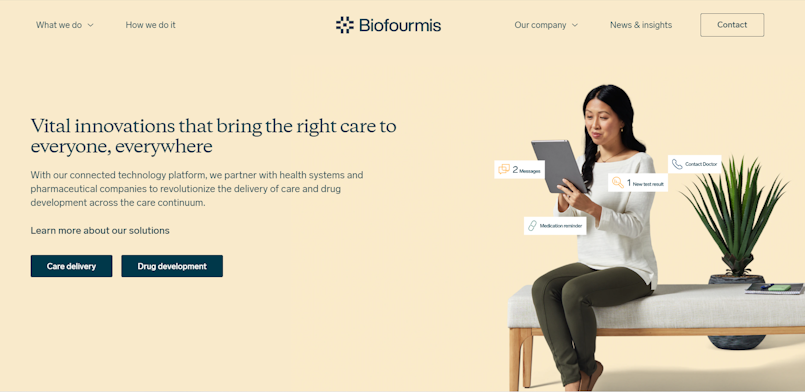
7. Metagenomi: Metagenomi is a United States-based company that uses AI to discover new drugs from the human microbiome, which consists of bacteria and other organisms found in our bodies that play an integral part in health and disease. Metagenomi has raised $457 million and is valued at over $500 million.

8. Insilico: Based out of Hong Kong, Insilico Medicine uses artificial intelligence (AI) to design and create new drugs. Their technology uses 3D models of cells and tissues, then simulates how drugs interact with them using AI simulation. Over the last four years, they have raised over $401 million in funding and their estimated worth exceeds $300 million.
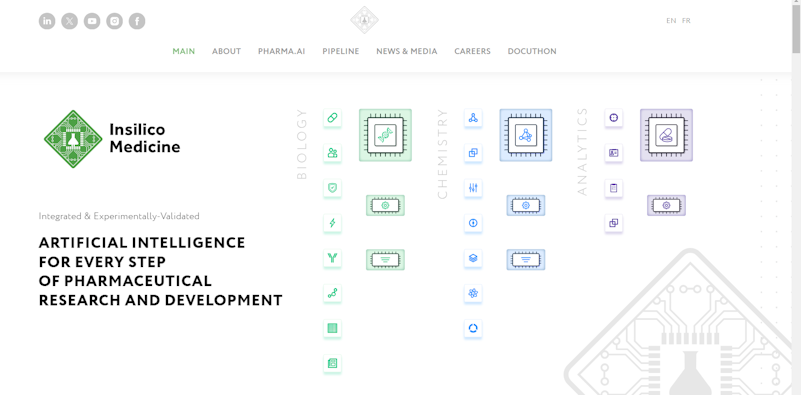
9. Spring Health: Spring Health is a U.S.-based company that utilizes AI to connect patients with the right doctors and care providers. Their platform uses data collected through insurance claims to locate those best suited to treat specific conditions. They have raised over $366 Million in funding to date and have an estimated valuation of over $1 Billion.
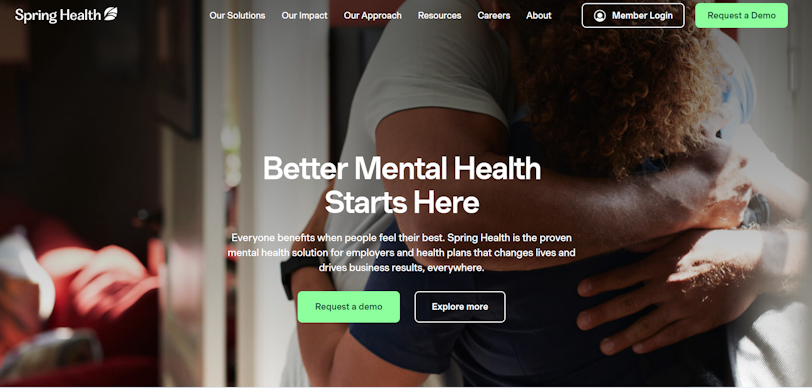
10. Beijing Infervision: Beijing Infervision is a China-based AI medical technology company focused on enhancing human life through artificial intelligence. It specializes in developing AI solutions for disease screening, diagnosis, intervention, treatment, patient management, and medical research. Infervision has secured over 370 patents, published more than 110 SCI/Peer Reviewed Papers, and operates in over 25 countries, serving 1000+ medical institutions.

These are just a few of the exciting AI healthcare startups making a difference worldwide. With AI technology advancing further, we can anticipate further healthcare innovations over time.
AI Healthcare Innovative Solutions and Their Impact
AI healthcare startups are transforming the healthcare sector by leveraging artificial intelligence to enhance patient care, diagnostics, and treatment methodologies. These startups are at the forefront of introducing AI-powered solutions across various aspects of healthcare, significantly impacting diagnostics, personalized medicine, and healthcare operations.
Key areas where AI is making a significant impact include:
Diagnostics: Startups like Pieces Technologies and Ubie are using advanced AI algorithms for more accurate and faster diagnostic solutions. Pieces Technologies focuses on analyzing patient data for complex diseases such as cardiovascular and neurological conditions, enhancing both diagnosis speed and treatment success rates. Meanwhile, Ubie aids in symptom analysis and preliminary diagnosis, streamlining the diagnostic process and ensuring quicker patient care.
Personalized Medicine: AI healthcare startups are revolutionizing personalized medicine by analyzing vast datasets of patient information. This analysis uncovers patterns and correlations that enable the creation of tailored treatment plans, moving away from the one-size-fits-all approach to a more individualized care strategy.
Predictive Analytics: The development of AI algorithms for predictive analytics is another significant advancement. These algorithms can predict potential health risks and disease progression, allowing for early interventions that can change the course of diseases like Alzheimer's and reduce long-term healthcare costs by improving patient outcomes.
Healthcare Operations: AI is also optimizing healthcare operations by efficiently managing and analyzing large volumes of data, such as patient records and insurance claims. This not only improves patient experience by streamlining processes but also alleviates the administrative burden on healthcare providers, allowing them to focus more on patient care.
Global Reach: AI healthcare solutions are particularly beneficial in regions with limited access to healthcare resources, offering remote diagnosis and treatment options. This helps in bridging health disparities between developed and underdeveloped regions by making quality healthcare more accessible.
Startups like Radiobotics are leading the way in medical imaging analysis, showcasing how AI-driven innovations make healthcare more precise, personalized, and accessible. As these technologies continue to evolve, their impact is set to increase, making AI an integral part of the healthcare journey.
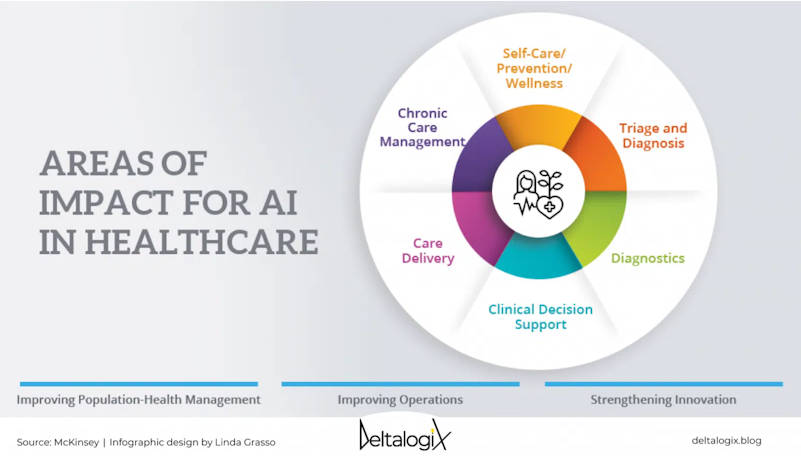
Bridging Challenges with Opportunities in Medical Sectors
Artificial Intelligence (AI) in healthcare presents medical companies and hospitals with both challenges and opportunities. While AI holds great promise, adoption may present some hurdles. Understanding and overcoming these challenges may unlock amazing possibilities that enable more efficient healthcare systems.
Integration Challenges of Artificial Intelligence in Healthcare
1. Data Privacy and Security: This is one of the biggest challenges AI systems pose to patient data privacy and security. AI systems need access to large amounts of sensitive health data, with breaches or misuse potentially becoming an increasing risk. Hospitals and medical companies should implement effective cybersecurity measures to protect patient information while complying with regulations such as HIPAA.
2. Interoperability and Data Standardization: Lack of standardization in health data formats and interoperability issues between healthcare systems can pose major hurdles to AI's effectiveness, necessitating concerted efforts towards harmonization across different healthcare platforms to make AI truly useful.
3. Ethical and Legal Considerations: AI in healthcare raises important ethical concerns around decision-making and accountability when an AI system makes diagnostic or treatment errors, so addressing legal and ethical considerations for widespread adoption is vital for its widespread implementation.
4. Skill Gap and Training: There exists a considerable skill gap among healthcare workers when it comes to using AI technologies. Training healthcare workers on how to access and interpret insights generated by AI systems effectively is crucial to realizing its full benefits.
5. Integration with Legacy Systems: Integrating AI technologies with existing legacy healthcare IT systems presents a significant challenge. These older systems may not be readily compatible with new AI solutions, necessitating customizations or upgrades to facilitate seamless integration and ensure that AI can effectively enhance patient care and operational efficiency.
Transformative Opportunities AI Presents in Healthcare
1. Improved Patient Outcomes: AI healthcare startups are revolutionizing patient care by harnessing AI's superior data analysis abilities. AI-powered technologies allow doctors to analyze vast amounts of medical data more precisely, leading to more precise diagnoses and personalized treatment plans. AI's implementation in healthcare has demonstrated significant improvements in patient outcomes with faster recovery times and greater success rates, all powered by this precision medicine approach made possible through AI.
2. Operational Efficiency: AI healthcare startups are revolutionizing healthcare administration by automating common administrative tasks like appointment scheduling, billing, and patient record management. By eliminating manual workloads associated with healthcare operations, AI-enabled facilities operate more efficiently while still giving patients timely attention from healthcare providers.
3. Cost Reduction: AI healthcare startups have one of the greatest impacts in terms of cost reduction. By automating administrative processes and optimizing treatment plans, AI helps reduce unnecessary procedures and tests while streamlining operations to reduce wasteful spending; making healthcare more affordable for both patients and providers alike. AI's cost-cutting benefits go beyond individual facilities to offer system efficiency gains and sustainability potentials.
4. Innovation Treatment Solutions: AI healthcare startups are at the forefront of offering cutting-edge treatment options, from speeding drug discovery processes to customizing therapy plans. These advancements enable more targeted healthcare solutions, significantly improving patient care. Harnessing AI's analytical power enables healthcare startups to identify new treatment pathways and therapies - opening up possibilities to treat chronic and complex diseases with greater ease than ever before.
5. Global Healthcare Access: AI healthcare startups play a critical role in widening access to quality healthcare worldwide. By employing AI-powered diagnostic tools and telemedicine services, they make quality healthcare available in remote or underserved regions around the globe - thus helping reduce health disparities worldwide and creating inclusive quality care services more easily accessible by populations that previously faced barriers to access.
AI healthcare startups are not simply innovating within the medical field; they are fundamentally altering healthcare delivery and accessibility for all, promising an era when healthcare can be delivered more efficiently, effectively, and equitably for all.
Challenges and Opportunities for Medical Companies and Hospitals
Artificial Intelligence (AI) brings both challenges and opportunities for medical companies and hospitals, but understanding and navigating them will lead to greater efficiency and effectiveness in healthcare systems. Although AI offers immense promise, its implementation does not come without obstacles; yet by understanding and managing them successfully, it could open up remarkable possibilities that make for more efficient care.
Challenges of Implementing AI into Healthcare Settings
1. Data Privacy and Security: One of the biggest challenges is safeguarding patient data. Artificial Intelligence systems access massive amounts of sensitive health data, raising concerns over breaches or misuse. Hospitals and medical companies must invest in robust cybersecurity measures to protect patient information while meeting HIPAA regulations.
2. Interoperability and Data Standardization: Lack of standardization among healthcare data formats and interoperability issues between various systems can pose substantial difficulties for artificial intelligence (AI). To work effectively, AI requires access to comprehensive, standardised data that spans multiple healthcare platforms - an effort which must be put in to ensure its effectiveness.
3. Ethical and Legal Considerations: AI in healthcare raises ethical considerations around decision-making and accountability when used for diagnosis or treatment decisions, and must address both legal and ethical considerations to achieve widespread adoption.
4. Skill Gap and Training: Due to an emerging skills gap within healthcare professions surrounding AI technology use, training healthcare workers on how to utilize and interpret AI-generated insights is vital to reap all its advantages.
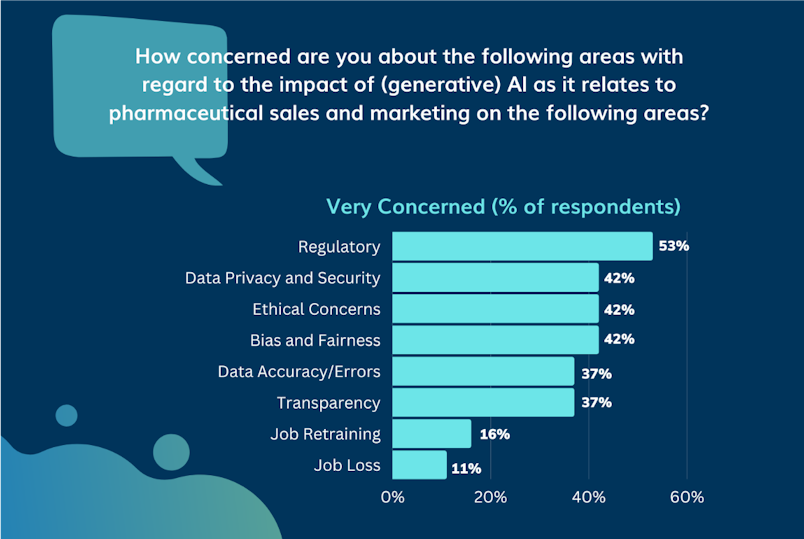
Opportunities Offered by AI Healthcare Startups
The integration of AI by healthcare startups is revolutionizing the medical sector, offering solutions that promise to transform patient care, enhance operational efficiencies, and make healthcare more accessible worldwide. Here’s how AI healthcare startups are making strides in the medical field.
Enhance Patient Outcomes: AI healthcare startups are leading the charge in precision medicine, using their advanced data processing abilities to analyze vast amounts of medical information to make more accurate diagnoses and customize treatment plans, dramatically improving patient outcomes. By harnessing AI, these startups are providing healthcare solutions that not only work efficiently but are tailored specifically for individual patient needs - an impressive advancement in medical care delivery.
Operational Efficiency: AI healthcare startups are streamlining healthcare facilities' operations with AI-powered administrative task automation, such as scheduling, billing and patient record management. AI systems take over these arduous tasks so healthcare providers can focus on what they do best: providing patient care. This shift not only improves the quality of care but also increases satisfaction among both patients and healthcare providers by making services more responsive with less administrative overhead burden.
Cost Reduction: AI healthcare startups have long been at the forefront of efforts to lower healthcare costs. Optimizing operational processes and eliminating unnecessary tests and procedures significantly lower financial strain on healthcare systems - not only making healthcare more accessible for patients. It also contributes towards sustainability within healthcare providers so that quality healthcare services continue to be made available when necessary.
Innovative Treatment Solutions: AI in healthcare has opened up exciting new paths of treatment and therapy, with AI healthcare startups leading innovation in drug discovery and tailoring personalized therapy plans specifically to individual patients. Not only is this improving the quality of care but it is also expediting market release timeframes of newly discovered treatments promising greater patient success overall.
Global Healthcare Access: AI healthcare startups play an invaluable role in providing healthcare access to underserved and remote areas by employing AI-powered diagnostic tools and telemedicine services that break geographical and logistical barriers, bringing quality healthcare services closer to global populations. This expansion of access is vital in closing health disparity gaps and guaranteeing everyone has the chance to receive quality medical care regardless of location.
AI's transformative potential in healthcare is immense. By overcoming integration challenges, AI healthcare startups stand poised to change the healthcare landscape - improving patient outcomes, optimizing operational efficiencies and expanding global access to healthcare services.
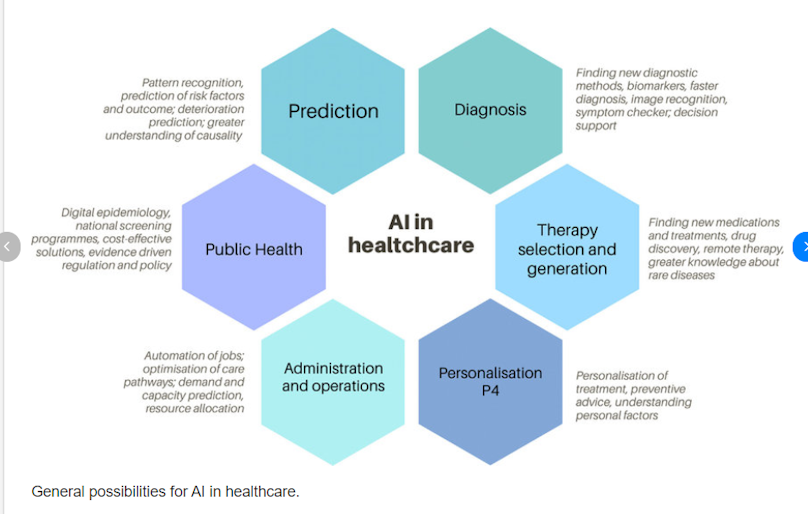
Specific AI Applications in Healthcare
Drug discovery is one of the most promising areas of AI application in healthcare research. Through the power of machine learning and advanced algorithms, AI is accelerating the development of new therapies and improving patient outcomes.
AI-Powered Drug Discovery
The traditional drug discovery process is a time-consuming and costly endeavor.
AI is accelerating this process by:
Generative AI: AI algorithms help generate novel molecular structures with desired properties, significantly expanding the chemical space for drug discovery.
Virtual Screening: AI-powered virtual screening can rapidly identify potential drug candidates from vast libraries of compounds, reducing the need for extensive wet-lab experiments.
Identifying Novel Drug Targets
AI is also aiding the identification of novel drug targets:
Protein Structure Prediction: AI algorithms, such as AlphaFold, can accurately predict protein structures, enabling researchers to identify potential drug targets.
Network Biology: AI can analyze complex biological networks to identify key nodes and pathways that could be targeted for therapeutic intervention.
Predicting Drug Efficacy and Toxicity
AI-powered tools also accurately predicts the efficacy and toxicity of drug candidates:
Quantitative Structure-Activity Relationship (QSAR) Modeling: AI models can predict the biological activity of molecules based on their chemical structure.
Adverse Drug Reaction (ADR) Prediction: AI can identify potential ADRs by analyzing large datasets of clinical trial data and electronic health records.
Automating and accelerating these critical steps in the drug discovery process helps healthcare providers bring life-saving therapies to patients faster and more efficiently
Medical Image Analysis
Medical image analysis is a rapidly evolving field that leverages AI to extract valuable insights from medical images such as X-rays, CT scans, and MRIs. Let's consider how AI affects healthcare providers and treat diseases.
Detecting Subtle Abnormalities
With AI-powered algorithms it's easier to detect subtle abnormalities in medical images that may be missed by the human eye. For example, AI can identify early-stage tumors, detect microcalcifications in mammograms, and identify subtle signs of neurological disorders.
Quantifying Disease Progression and Treatment Response
AI can accurately quantify disease progression and treatment response by analyzing changes in medical images over time. This enables healthcare providers to monitor disease progression, assess the effectiveness of treatments, and make timely adjustments to treatment plans.
Enabling Remote Diagnosis and Telemedicine Consultations
AI-powered image analysis enables remote diagnosis and telemedicine consultations. By analyzing medical images remotely, healthcare providers can offer expert opinions to patients in underserved areas, improving access to quality care.
Ethical Considerations and Regulatory Landscape
The integration of AI into healthcare has raised significant ethical concerns that must be addressed. One key issue is bias and fairness. AI algorithms are trained on data, and if that data is biased, the AI's decisions may also be biased. For instance, if an AI algorithm is trained on a dataset that primarily includes data from a specific demographic, it may be less accurate in diagnosing or treating patients from other demographics. To mitigate this, it is crucial to use diverse and representative datasets to train AI models.
Explainability
Another ethical concern is transparency and explainability. AI models, particularly deep learning models, can be complex and difficult to interpret. This lack of transparency can hinder trust in AI-powered systems. Efforts are underway to develop techniques that can make AI models more interpretable, allowing healthcare providers to understand the reasoning behind AI-driven decisions.
Regulatory Landscape
Privacy and security are very important concerns in healthcare. AI systems often process sensitive patient data, making it essential to implement robust security measures to protect this information from unauthorized access and cyberattacks. Strict adherence to data privacy regulations, such as HIPAA in the US and GDPR in the EU, is crucial to safeguard patient confidentiality.
The regulatory landscape for AI in healthcare is rapidly evolving. Regulatory bodies like the FDA in the US and the European Union's Medical Device Regulation (MDR) are developing guidelines and standards for AI-powered medical devices. It is essential for developers and healthcare providers to stay updated on these regulations to ensure compliance and avoid legal issues.
What is AI-Driven Personalized Medicine ?
AI is poised to revolutionize healthcare by enabling personalized medicine. By analyzing vast amounts of patient data, including genomic information, electronic health records, and wearable device data, AI algorithms can identify patterns and predict disease risk. This information can be used to tailor treatment plans to individual patients, maximizing efficacy and minimizing side effects.
For example, AI can help identify patients who are likely to respond well to specific drugs based on their genetic makeup. This can lead to more effective and targeted therapies, reducing the need for trial-and-error approaches. Additionally, AI can help predict the risk of adverse drug reactions, allowing healthcare providers to make informed decisions about medication choices.
As AI continues to advance, we can expect to see even more sophisticated personalized medicine applications, such as AI-powered drug discovery and development, real-time health monitoring, and early disease detection.
Ethical Concerns and Societal Implications
Bias and Fairness: AI models can perpetuate biases present in the training data, leading to unfair and discriminatory outcomes. It is crucial to develop techniques to mitigate bias and ensure fairness in AI-powered healthcare systems.
Job Displacement: The automation of tasks through AI may lead to job displacement in the healthcare industry. It is important to consider the social and economic implications of AI adoption and to develop strategies to mitigate job losses.
Privacy and Security: AI systems often process sensitive patient data, making it essential to implement robust security measures to protect this information from unauthorized access and cyberattacks.
If we aim to harness the power of AI to improve healthcare while minimizing potential negative impacts, addressing these challenges and ethical concerns is important.
The Future of AI in Healthcare: Trends and Predictions
Artificial Intelligence (AI) is revolutionizing healthcare and changing healthcare landscape at an ever-accelerating pace. Many trends and predictions point toward a profoundly transformed healthcare ecosystem driven by AI's integration and development; here's a glimpse of what we might see over time:
1. Predictive Healthcare: AI will play a significant role in predictive healthcare, using algorithms to analyze patterns in patient data to predict potential health issues before they become critical. This shift towards preventative care will not only enhance patient outcomes but also relieve strain on healthcare systems.
2. Expansion of Telemedicine: Artificial intelligence will spur further expansion in telemedicine, making remote healthcare more effective and accessible, especially in areas that lack easy access to medical facilities. Virtual assistants powered by AI as well as diagnostic tools could make remote healthcare even more effective and accessible than ever.
3. AI in Medical Imaging: AI will become increasingly important in medical imaging, with advanced algorithms providing more precise and rapid analysis of images, aiding early cancer detection while decreasing reliance on radiologists for screenings.
4. Personalized Drug Development: AI will facilitate more personalized and effective drug treatments as it analyzes complex biological data more quickly, cutting the time and costs associated with getting new drugs to market faster.
5. Wearable Health Tech: As AI advances, wearable health technology will become more prominent on the market. Not only will AI-integrated wearable health tech track fitness metrics but it will also monitor vital health indicators, providing real-time data to healthcare providers for continued patient monitoring.
6. AI Ethics and Governance: As artificial intelligence becomes an ever-more integral component of healthcare, developing ethical guidelines and governance structures is imperative to ensure its proper use, taking into account issues like bias, transparency and accountability.
7. Enhanced Patient Experience: AI will revolutionize patient experiences, providing more individualized care and interactions. From AI-powered chatbots to tailored treatment plans, AI can tailor its offerings specifically to each patient's individual needs and preferences.
8. Global Health Equity: AI has the potential to play an immense role in decreasing global health disparities. By offering cost-effective healthcare solutions that scale, AI could make quality care accessible and available globally.
AI's future in healthcare is bright and holds immense promise, from improving patient care to revolutionizing medical research, AI promises to transform healthcare as we know it into something that's more predictive, personalized, and accessible for everyone.
Conclusion
As we have seen, the rise of Artificial Intelligence (AI) in healthcare is more than a passing trend; it represents an ongoing revolution that's changing how healthcare is delivered and redefining what medical treatment can achieve. At its centre are AI healthcare startups providing cutting-edge solutions to make medical care more precise, personalized and accessible; not simply changing what's possible through medicine but expanding what can be accomplished within it.
Artificial Intelligence (AI) will become a staple in healthcare over time, powered by innovation and dedication to patient care. We expect more groundbreaking advances from AI as technology progresses that could revolutionize care further - its journey is only just starting, and its potential is immense! In conclusion, the ongoing revolution in healthcare, spearheaded by AI, is a testament to human ingenuity and the relentless pursuit of better health for all.

